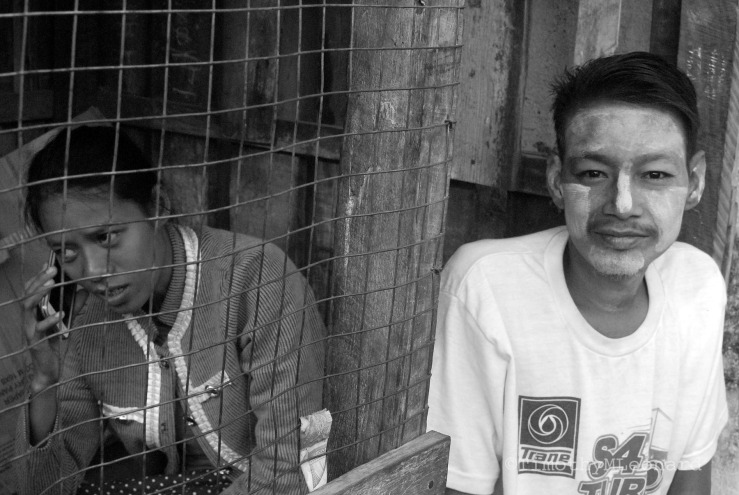Akiko
“The fear of living, observing and experiencing in absurd detail where others lack the self-scrutiny or courage to voice them,” said David Foster Wallace.
*
Sheep fear watching other people make things happen and not knowing what the fuck is going on, said Z. Sheep and robots fear taking a risk. They know it’s easier to do nothing than take a chance, said Leo.
I cut useless meaningless vague words blocking the narrative river. I am innocent, happy, empty and brave. I am not afraid to make wise selections when it comes to editing this massive amount of verbiage, said Zeynep.
Where’s the burn bag, said the janitor.
I fear Room 101, said Winston Smith in 1984.
Poor schools makes it easier for SYSTEMS to control ignorant citizens.
Leo - In Utopia we learn the less we do the fewer mistakes we make. The fewer mistakes we make the less we are criticized. I remain safe and happy. It’s called THE SYSTEM. Brainwashed. You see this in every Asian education system.
Students shuffle in, remove their brains, soak them in a cleaning solution that is not the solution for fifty tedious minutes and replace said gray matter at the end of class. It’s endemic. Social conditioning.
A teacher is Parent #2. School is your first dictator.
Big Brother is watching. Save face. It’s your karma.
The fear of humiliation is greater than the fear of death, said Death.
Karma is the universal law.
Will your characters discuss moral ambiguities? Yes. They will speak with nouns and verbs and use specific adjectives for description, playing with words like Joyce. They will play with ideas, like Borges, said Zeynep.

Attributes of good ideas said Devina.
a. Simple
b. Unexpected
c. Concrete
d. Credible
e. Emotional
f. Story-containing
Good writing is clarity, simplicity, brevity and humanity. There are people who talk about things, said Zeynep, People who talk about people and people who talk about ideas. The life of the mind.
Is a place a character, asked Tran, Sure, said Devina, A place has character like Kroma, Cambodia, a sleepy river town, famous for pepper, Sunflower’s hands, Milling Around and the SIGN ones, said Rita.
Writers use a specific location in their work, said Omar. Cadiz, Spain worked its way into my morning pages. I traveled with a nomad after 9/11.
His laughing axe synthesized metaphors of death, sacrifice and letting go. His mirrors became gifts (hello beauty) and gifts multiplied gifts with gratitude. The gift keeps moving. It was imperative to leave the united states of confusion and Morocco behind.
Exile suited our spirit. It was the irony of ironies, pressed irons with heavy starch in the collar please I told the world’s dry cleaner. Wash and wear. Dry a tear.
Nothing is true & everything is permitted, Omar told Akiko, a Japanese fashion designer in Cadiz.
Everything is permitted with fabric and threads, naked in the dark exploring their personal puzzle maps, tracing contours through the Sierras in Andalusia toward beaches woven with linen and silk.
They were two orange and black butterflies dancing in a courtship ritual. They slept together in a Hokkaido love hotel filled with mirrors.
At 2 a.m. Cadiz garbage workers in fluorescent yellow tiger stripes collected discarded words along narrow streets.
Omar wrote the morning down as sky painted orange, pink and cerulean colors. A crescent moon hung in the west. He walked down Benjumeda Street as uniformed school kids gripped parental hands passing veiled grandmothers wearing widow market black at intersections on their daily economic briefing. Roman cobblestones rested in white shadows. Cool clear air dusted lungs.
The Plaza de Falla Moorish red brick extremities shimmered in soft light. Arches formed prayer hands. Golden, cast iron, bronze, brick, tile, and papier mâché arch models in the world prayed for non-violence, dialogue, a ceasefire and arms control.
Arms out of control waved goodbye to sanity and millions of orphans.
Weary serious sad med students gripping texts crossed plazas toward class. Matriculation was a fading dream. Two men grimaced a ladder past a hospital and a fortune teller selling lottery tickets. Gambling was a big deal in Cadiz. Machines in bars with three virgin cherries rotated. ONCE lottery tickets bought the population where 40% were unemployed.
Pay now pray later. The best is yet to come, said an unemployed Roma fortune teller.
A nurse in white perfection entered a cafe for coffee. Old people hobbled in and out of a hospital. A woman left the hospital carrying one crutch. Needing Grave Digger she walked past an ambulance. I’m busy, said Digger, See my calloused hands.
Death stood watch 24/7 in the big leagues.
![Book of Amnesia Volume 1 by [Timothy Leonard]](https://m.media-amazon.com/images/I/51bLipg6kyL.jpg)






 Share Article
Share Article 
